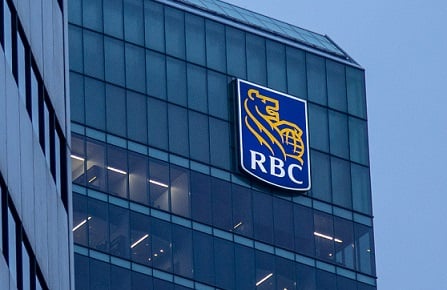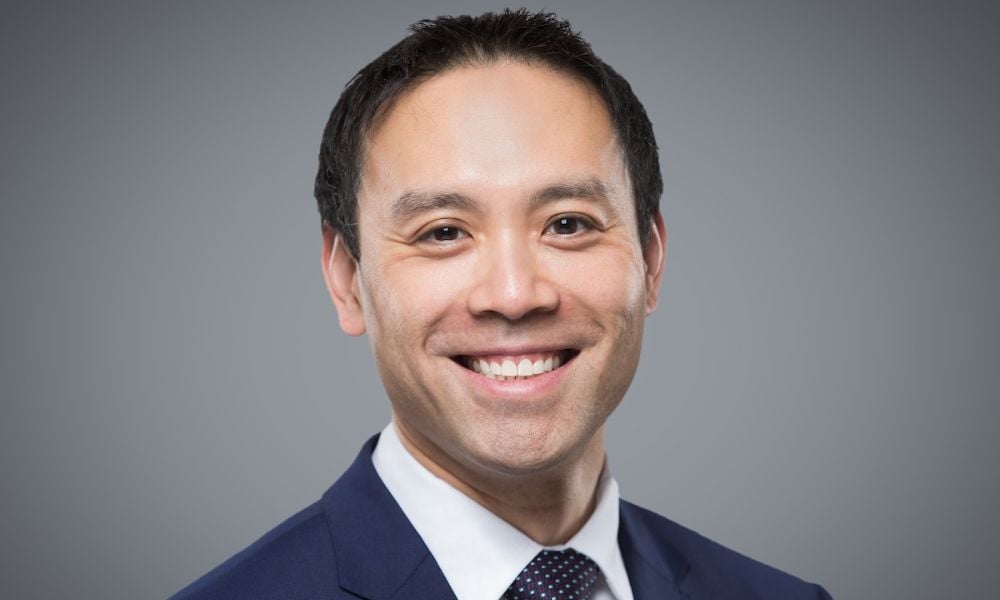RBC’s distinguished HR champion reflects on her achievements, her passion for diversity, and her retirement plans

After an extraordinary career with RBC, HR champion Zabeen Hirji has been recognized with the Ivey Business School Award for Lifetime Achievement in the HR Industry at this year’s HR Awards.
Hirji retires from RBC this month after four decades with the bank. After beginning her career as a teller, she moved into successively senior leadership roles, before becoming the bank’s global chief human resources officer – a role she’s held for the last 10 years.
Throughout her time at RBC, Hirji is credited with driving the award-winning employer’s focus on human capital management, and pioneering leadership and diversity initiatives.
She’s also an active community leader and works with other organizations on achieving diversity at board level. Last year, she was awarded the Meritorious Service Medal for her diversity and inclusion work.
In an interview with HRD, Hirji reflected on her stellar career, her passion for diversity and inclusion, and what the future holds.
You’ve had an extraordinary career with RBC. What have some of the highlights been?
As I reflect on my career, what’s most important is what others say about my impact.
This is what our CEO, Dave McKay said in my retirement announcement to employees: “Through the work she has led, Zabeen has had an enduring impact and we will continue to benefit from her legacy. She championed the development of our Collective Ambition, which included the innovative Employee Jam, a first for RBC. I continue to see the impact of this work in aligning and inspiring employees globally to achieve our purpose and vision and to live our values. Employee engagement and talent development have become an organizational priority, and she has challenged us to be an inclusive company, putting diversity into action for our employees, clients and communities. She also guided the development of our new corporate citizenship strategy, focused on unlocking the potential of youth.”
Let me add a bit more about Collective Ambition. It is a purpose-driven, performance-oriented and principles-led approach to business. We articulated RBC’s purpose, putting it at the centre of the business model, updated our vision, and modernized the values, ensuring alignment across strategy, culture and brand. One key success factor was our Collective Ambition Champions Group – comprised of key business and functional executives who were opinion leaders and important culture carriers, critically important in building broader buy-in and ownership, and we also included younger leaders.
The Employee Jam was called “Our Future, Your Voice”. Yes, we were taking some risk. Launching a process that would invite input and potential criticism from employees in an open and real-time format, set some nerves on edge. But we were up to being bolder. Our Jam was held over 55 hours with over 50 leaders, including our CEO, asking questions, giving opinions, reacting to posts, with unfiltered commentary on RBC’s purpose, vision, values, and desired behaviors.
What message do your achievements send to women about career possibilities, including reaching the C-suite?
My story reminds us that life is full of possibilities. “Dream big, and take action to get there."
My late father instilled in me the belief that I should not limit my ambitions, just because I was a girl. As a newly-arrived immigrant in high school, I started with a part-time job at McDonald's. Three years later, I joined RBC as a teller, while studying part time at Simon Fraser University, where I completed an MBA. My career choices took me to many businesses and functions in RBC, first in Vancouver then Toronto, and that breadth and depth of experience helped prepare me for my ultimate role as Chief Human Resources Officer.
In 1997, when I moved into Human Resources after 20 years in business roles, I expected to stay only a few years, but soon realized I had discovered my sweet spot, where passion meets impact. Without question, RBC's success depends on our people, so the work had significant impact. But what made it deeply meaningful is the impact I could have on fellow RBCers, you could call that personal purpose. Inspiring our people to set high ambitions and enabling them to realize their potential. Through our talent practices, a high performance culture and an engaging employee experience, we enable RBCers to thrive in their careers and beyond. It’s a win/win/win - when employees realize their potential, our clients win, as do our communities and shareholders. It’s how we have and will continue to build a sustainable business and achieve RBC’s purpose to Help Clients Thrive and Communities prosper.
And as a leader, I also made the decision to be bolder, to champion philosophies and practices that reflected changing employee expectations as well as my beliefs about what makes a great workplace, and also to be courageous and constructively challenge, knowing that wouldn’t always be easy.
I should add that I made important choices along the way, some more difficult than others – e.g., I took career risks - I advocated for myself early in career, I took jobs in unfamiliar areas - like our credit card business, where there was no guarantee of success. I defined success on my own terms, for example, taking a job at a lower level, because I wanted to learn, even though I knew colleagues would wonder if I was off the career track. I even declined my first executive position because my children were still very young at the time.
Bottom line, if you do what you love, you have a much better chance of being good at it and succeeding on your own terms.
What has changed HR-wise at RBC during your time in human resources?
A lot has changed HR-wise at RBC. Human Resources has gone from being a service provider to a business partner and change leader. We are bolder with a greater bias for action. We’re working in new ways to drive innovation, by introducing an HR hackathon, for example. That said, this is a journey, with more to do as we “reimagine” HR for the future.
HR teams are deeply embedded in the businesses. We sit on management committees. We're expected to understand the business opportunities and challenges and proactively lead the talent agenda. We develop business-integrated people strategies vs. something “off to the side”, including recommending talent plays to move the best people to the most critical roles, rather than simply waiting to fill vacancies. HR identifies capabilities that can be leveraged to win in the market, as well as key capability gaps and how to close them.
We're creating compelling employee experiences, mirroring our approach to the client experience. And articulating the employment brand with a marketing flair, using design thinking to put employees at the centre, digitizing HR, and using data analytics to develop personalized experiences like the next best offers for learning, or a new job. The HR silos are coming down in order to deliver a seamless employee experience.
HR plays a key role in culture change and driving new leadership behaviours by embedding them throughout talent processes - recruitment, promotions, development, performance management and compensation.
The HR team is much more diverse through talent mobility . In addition to movement across HR groups, many colleagues have come in from other parts of RBC - retail banking, wealth management, technology, finance, risk , law. And we've recruited HR professionals from other industries, too like consulting, technology, retail, and consumer goods. Today, our people have higher levels of formal education with over 25 percent holding graduate degrees in many disciplines. That kind of diversity drives innovation.
You’re also well-known as a champion of diversity and inclusion. How has this area (both in and outside of RBC) changed throughout your career, and why has it been important to you?
Diversity started out as a compliance exercise to meet employment equity legislation. It was viewed as an HR exercise, disconnected from business. Today it's very different. Simply put, it’s a business imperative. RBC's diversity strategy is holistic - it covers talent, clients, and communities and key elements are embedded in our business strategies, as opposed to a “let's do diversity today and tick the box exercise.” It's about attracting the best talent and helping bring out their best selves. All organizations say our people are our greatest asset. This brings that to life. At RBC we say "having diversity is interesting, doing something with it is powerful" Today, the focus is on inclusion, so employees can contribute their best and we can harness their diversity for innovation. On the client front, we have strategies for women, cultural groups, millennials, new immigrants and LGBTQ, so we can meet unique needs and win in these markets. And our community investments and engagement incorporate a diversity lens. These are all inter-connected. For example, we say "to serve the market, you need to hire the market." We manage the Diversity and Inclusion strategy like any other important business strategy. We have active visible leadership including at the most senior level with our CEO- led diversity leadership council. We have goals, such as staffing ratios, accountabilities and reporting, (including to our board) internal and external communications and grassroots employee engagement. This is a journey, and we're proud of what we've achieved, while acknowledging there is more to do.
Externally? Many are taking a similar approach, but are at different points on the continuum with Diversity and Inclusion receiving attention at the highest levels of business, government and academia.
It’s been important to me for many reasons. It’s aligned with my beliefs, and I see it as both the right and the smart thing to do. Inclusion is one of Canada’s enduring values. It drives healthy societies which drives prosperity. But we can’t take this for granted. It’s the smart thing to do for organizations and it’s about nation-building. We all know that Talent matters, it matters a lot. So let’s do the math – 50 percent of the population is female, add visible minorities, LGBTQ, People with Disabilities and Indigenous People – that’s over 70 percent of the population and growing. Diversity and Inclusion is a key element of our Human Capital Strategy – it’s about getting the best Talent (people), and then helping people be their best selves, all the time. Inclusion is the gateway to innovation. So I leave you with this “Diversity is a fact, Inclusion is a choice ”. What choices will you make, every day?
What’s next for you?
I'm excited about my next chapter which is still under construction. It will be a portfolio career, including corporate boards, public sector advisory and community leadership, and sprinkled with mentoring and teaching. I know that unlocking the potential of youth, and diversity and inclusion will feature prominently. And I’m looking forward to slowing down a bit, enjoying more time with family and friends, with more visits to the gym. And, inspired by Canada 150, exploring our country and our rich history.
Want the latest HR news direct to your inbox? Sign up for HRD Canada's daily newsletter.





